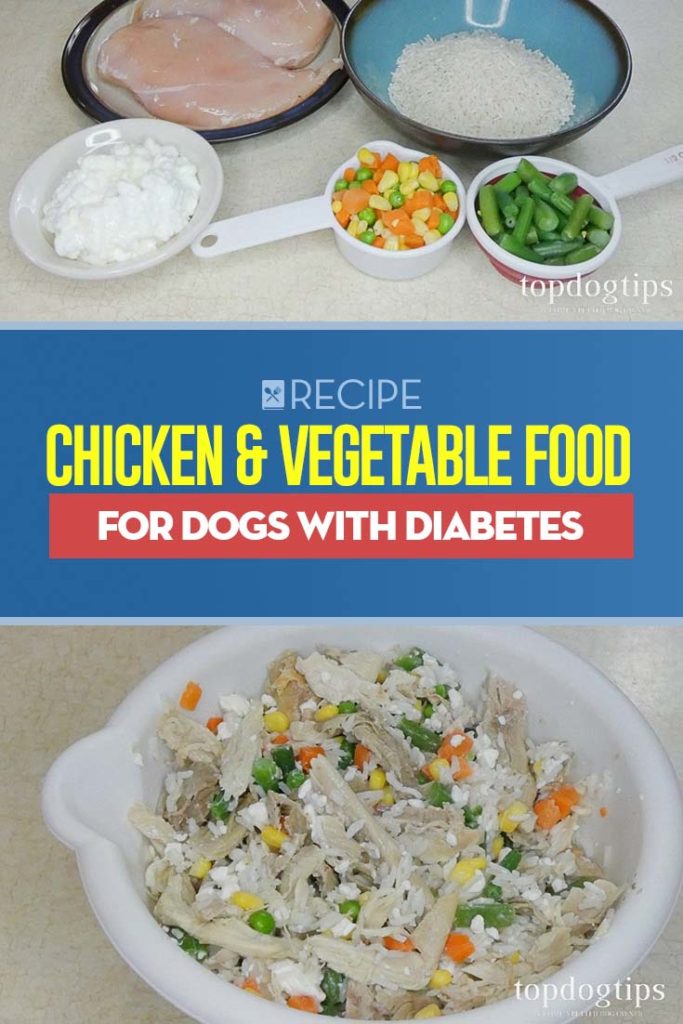Having a dog diagnosed with diabetes can be overwhelming. There is a lot to learn, especially about the best dietary options for your diabetic pet. You should consult with your veterinarian or a canine nutritionist before feeding this homemade food for dogs with diabetes recipe, or any other homemade diet.
Canine diabetes has been a hot topic for research in recent years, and we now have a much better understanding of the disease. Much of what we have learned is centered around proper nutrition and diabetic dog food, whether commercial brands or home cooked dog food, that can help manage your pet's condition.
Dogs with diabetes can live a normal life, so long as you commit to providing them with the best care possible. It's imperative that you work with your veterinarian and plan the right treatment for your diabetic dog. It's not something you should be doing on your own. Your treatment plan must include a proper diet, medication and a change in activity levels.
Chicken & Vegetable Food for Dogs with Diabetes
 Ingedients
Ingedients
- 2 cups cooked, chopped chicken breast
- 2 cups cooked long grain rice
- 1/2 cup steamed mixed vegetables
- 1/2 cup steamed green beans
- 1/2 cup cottage cheese
Directions
This simple recipe requires you to prepare all of the ingredients separately, and then combine them in a large bowl. You can cook the chicken any way that you like – boiling, baking, grilling, etc. You'll need to cook the rice according to the instructions on the packaging.
Steam the vegetables, and make sure all of the ingredients have cooled completely before serving to your dog. Once cooled, mix all of the ingredients in a large bowl.
The recommended serving size is about 1/2 cup for every 20-25 pounds of body weight. This recommendation is for 2 servings per day. For example, if your dog weighs 25 pounds, he would eat about 1/2 cup in the morning and 1/2 cup in the evening (read more here).
Keep in mind that this serving size is a recommendation. Active dogs may need more calories, while lazier dogs may not need as many. Be sure to consult your veterinarian or a canine nutritionist for the best advice on the proper portions for your dog.
READ NEXT: Dog Food for Dogs with Diabetes – What You Need to Know
Want to share this?











